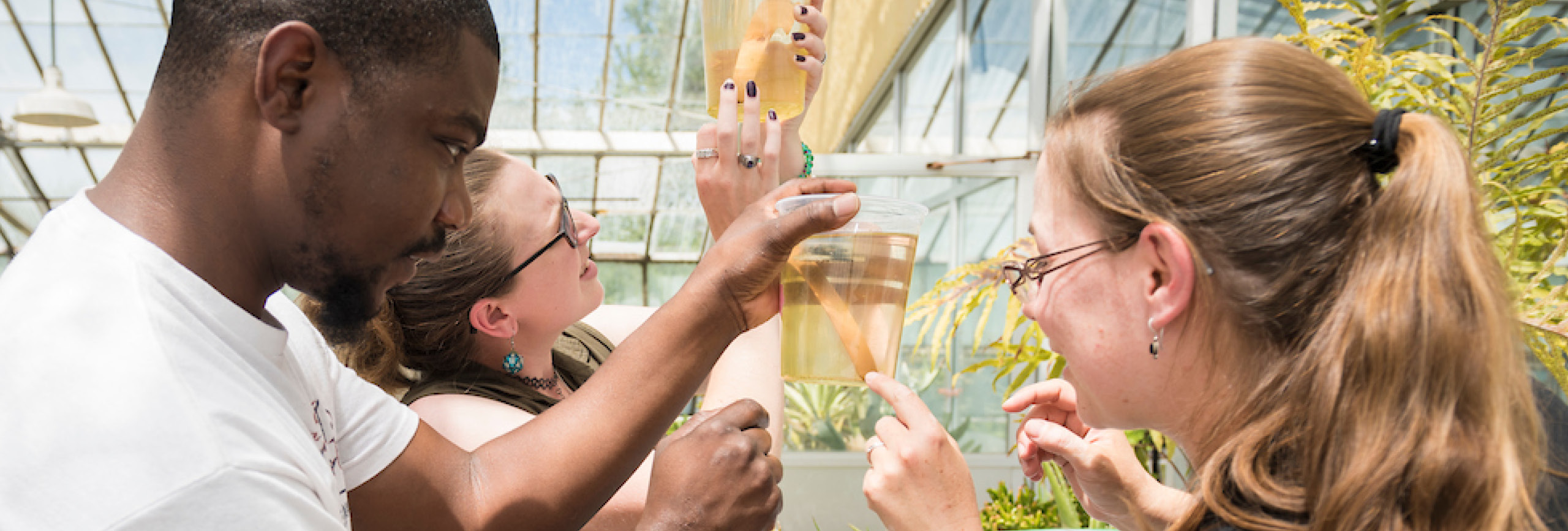STRESSED FOR SCIENCE
(continued)
This summer, Rachel designed an experiment to expose damselflies to stressful conditions and then measure their response to stress using novel molecular methods. Damselflies, which resemble small dragonflies, complete their development in aquatic environments like ponds and wetlands before emerging as adults. During their development, these nymphs could experience changes in temperature or food availability related to climate change. With the help of her colleagues Nicholas Bielski (Molecular Biology and Bioinformatics major, 2019), Christopher Foster, (Biology major, 2020), and Jhadzia Walton, Rachel collected over 200 damselfly nymphs from a local wetland and exposed 120 of these damselflies to heat stress, starvation, or both in miniature environments called microcosms. The microcosms mimic the insect’s natural environment while allowing Rachel to manipulate the food and heat treatments. After two weeks all the damselfly nymphs were collected and processed in the lab to isolate their metabolites, small molecules related to the metabolism of the organisms. The laboratory procedure involved grinding the tissue, using high frequency pulses to break open cells (sonicating), and separating the damselfly metabolites from other components like protein and fat. The material containing the metabolites will be processed using liquid chromatography mass spectrometry (LCMS) with instruments available in the S.C. Johnson Integrated Science Laboratory. This technique will be used to evaluate the relative amounts of eight different metabolites from each damselfly. Using her data, Rachel hopes to identify changes in metabolite concentration linked to the food and temperature treatments. In the future, detecting similar shifts in the metabolites of resident damselflies could be used to diagnose the health of freshwater ecosystems exposed to temperature stress or changes in food availability.
Rachel plans to complete and present her research before graduating in May 2020. After graduation, Rachel would like to get more experience in laboratory and clinical settings before continuing her education by pursuing a Masters of Science degree in Biostatistics. Her goal is to become a statistical consultant or biostatistician and work in a biomedical research center or assist with clinical trials.
